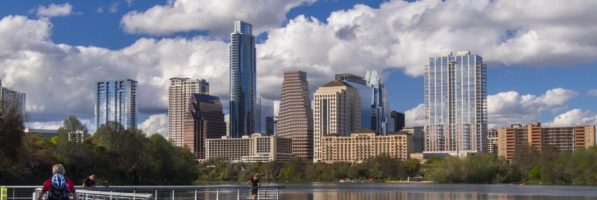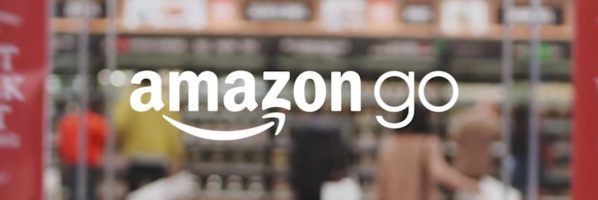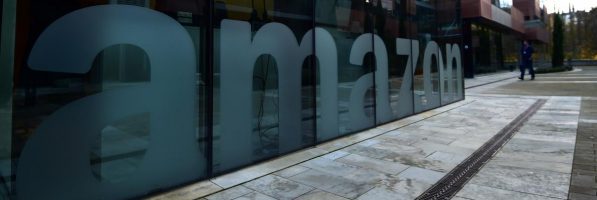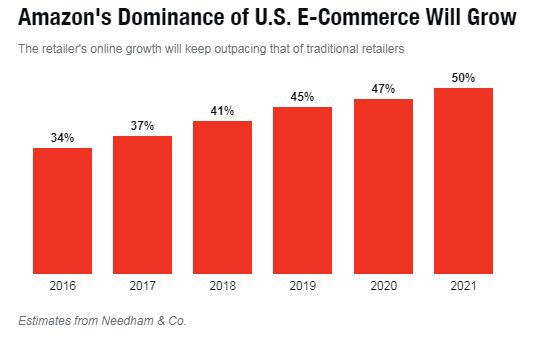New Austin, Texas Jobs Highlight Beginning of 2020

Once the lone Texan haven for artists, weirdos, and assorted left-of-center types, Austin has evolved into a major tech hub. Many companies are now headquartered in Austin, no doubt taking advantage of the smart and switched-on alumni that UT produces year after year.
Continue reading…Northeastern Prof Talks About Amazon Automation and Future Shopping

After the emergence of Amazon Go, a cashier-less convenience store the e-commerce juggernaut recently opened in downtown Seattle, Northeastern University’s D’Amore-McKim School of Business explored the potential impact of automation on the future of commerce.
The simple concept behind Amazon Go is a streamlined mini-mart experience in which customers “scan their smartphones with an app [and] grab what they want.” DMSB Associate Professor of Marketing Strategy and Managerial Decision-Making Bruce Clark discussed the implications of what New York Magazine dubbed the “automated 7-Eleven killer.”
“Unless you have an Amazon Go next door to your store, I’m not sure this is a big deal. It’s not clear to me the customer experience of an Amazon Go store is sufficient to make me walk past the local 7-Eleven. Geography is destiny in this sense: where you have more convenient stores, you will do well. A longer-term threat might be if Whole Foods went cashier-free and you had a Whole Foods next to your convenience store.”
Clark is quick to point out that AI more commonly automates pieces of jobs rather than entire gigs and cites the advent of the ATM in the late 1960s and ’70s as a key example.
“Despite widespread adoption of ATMs, employment of bank tellers increased over much of the past three decades. The driving factor was that while a given bank branch might require fewer tellers, that reduction in labor costs meant that banks could open more branches, offsetting the loss at any given branch. Tellers’ jobs in turn became more like that of a customer service representative rather than a paper- and currency-pusher.”
Clark remains cautiously optimistic about the future of retail, according to reports.
“The common thinking is that over time, human jobs will evolve toward processes at which humans remain better value, notably in emotional intelligence and physical dexterity. Retail employees will find their jobs increasingly specified in those terms. You’re either interacting with customers or efficiently managing the stocking and layout of a store. Employees who excel in these areas should be okay.”
But perhaps less so about the future of employment across the board. “All that said, I’m not sure any of us should be assuming we will have stable, well-paid employment in the future.”
Harvard Business School Breaks Down the Amazon-Whole Foods Merger

The hefty $13 billion price Amazon paid for high-end grocery store chain Whole Foods means a lot for the future of both companies. But what exactly does purchase mean for the future of the American eCommerce giant? Harvard Business School recently looked deeper into the move.
Continue reading…
New Amazon Headquarters Bidding Race Begins, with 50,000 New Jobs on the Line

By October 19, bids for the newest Amazon headquarters (dubbed HQ2) will close. For the eCommerce giant, it’s another benchmark for an already historic year.
Following its outward commitment to more hiring and the landmark purchase of grocery store chain Whole Foods earlier this summer, Amazon just announced it will be establishing a new non-satellite headquarters outside of Seattle for the first time, which is expected to bring 50,000 jobs to a select city that bids for hosting duties. With the announcement, Amazon notes, “We are looking for a location with strong local and regional talent—particularly in software development and related fields—as well as a stable and business-friendly environment to continue hiring and innovating on behalf of our customers.”
In the six-page Request for Proposal form, which can be read here, Amazon notes a preference for North American cities that have the following:
- “Metropolitan areas with more than one million people.”
- “A stable and business-friendly environment.”
- “Urban or suburban locations with the potential to attract and retain strong technical talent.”
- “Communities that think big and creatively when considering locations and real estate options.”
Assuming Amazon does elect to build in a city with those population restrictions, there are only nine possible U.S. locations: New York City, Los Angeles, Chicago, Houston, Philadelphia, Phoenix, San Antonio, and Dallas. Three Canadian cities—Toronto, Montreal, and Vancouver—also hit the qualifying population figure.
In Philadelphia, Mayor Jim Kenney quickly announced the city’s intent to enter the bidding war. Chicago Mayor Rahm Emanuel also seems to be close to the effort. However, there may be reason to believe that Texas will be the eventually landing spot for HQ2, where 53-year old CEO Jeff Bezos spent much of his youth.
In a statement, Bezos said, “We expect HQ2 to be a full equal to our Seattle headquarters. Amazon HQ2 will bring billions of dollars in upfront and ongoing investments, and tens of thousands of high-paying jobs. We’re excited to find a second home.”
Local Economic Growth
Amazon notes that the host city will receive a boon beyond more lucrative job opportunities. In its announcement, the company, which employs nearly 400,000 people worldwide (not including short-term seasonal employees), detailed its financial impact in Seattle, which “resulted in an additional $38 billion to the city’s economy–every dollar invested by Amazon in Seattle generated an additional $1.40 for the city’s economy overall.”
As well, the company created more than 40,000 direct jobs in the Emerald City, and 53,000 additional jobs “as a result of Amazon’s direct investments,” according to the U.S. Bureau of Economic Analysis. In the Request for Proposal form, the company promises it “will hire as many as fifty thousand (50,000) new full-time employees with an average annual total compensation exceeding one hundred thousand dollars ($100,000) over the next ten to fifteen years, following commencement of operations.”
According to Wall Street firm Needham & Co., Amazon is expected to control 50 percent of all U.S. online sales by 2021. The ever-increasing market dominance has earned Amazon a fairly negative reputation, but has done little to deter growth.

Via Fortune
Seattle has also been witness to years of skyrocketing housing costs due to the immense economic growth. The Seattle Times notes “the median price hit $730,000, up nearly 17 percent from a year ago” for houses. Amazon and the rest of the Seattle corporate community may not be the only players responsible for the unusually high prices, but it is an inescapable part of the equation.
In a recent interview, Columbia Business School professor Rita McGrath said that Amazon may be looking for a location with less staggering housing costs.
“It’s hard to attract people if they can’t afford the housing available locally,” she said.
The Amazon MBA Impact
Last year, we highlighted Amazon’s massive effect on the MBA job market. The company creates a direct pipeline from its MBA internship program to full-time employment, which should rapidly increase with the creation of HQ2. In a previous interview with the Financial Times, Miriam Park, the Amazon Director of University Programs, highlighted the company’s recruitment strategy:
“The Amazon recruitment process is designed to ensure we hire top candidates with high-growth potential whatever their background may be. As part of this we recruit current MBA students and MBA alumni for permanent and internship opportunities worldwide and see MBAs as an important part of our leadership development. We value people who can balance long-term strategic thinking with tactical execution, and who have the ability to make data-driven decisions.”
The internship programs open opportunities for MBAs to join the company as senior product managers, operations analysts, and more. Throughout the Request for Proposal form, Amazon frequently reiterates its desire to build in a location that has a strong academic culture, writing, “a highly educated labor pool is critical and a strong university system is required.”
Amazon will formally announce where it will build HQ2 next year.
Metro Jobs Report: Seattle Minimum Wage, Breaking Up Amazon and More

Let’s dig into the latest job news …
CBS Prof Determines Busyness a Marker of High Status for Americans

Columbia Business School (CBS) recently published an article about a new Journal of Consumer Research study from CBS Professor Silvia Bellezza that finds Americans “increasingly perceive busy and overworked people as having high status.”
